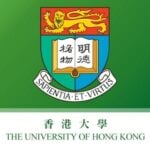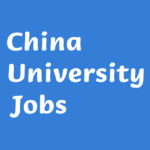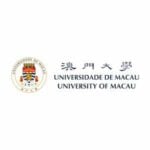Job Description
Employer: The Chinese Institutes for Medical Research (CIMR), Beijing
- Employer
- The Chinese Institutes for Medical Research (CIMR), Beijing
- Location
- Beijing (CN)
- Salary
- Competitive salary
- Closing date
- 7 Aug 2025
Job Details
The Chinese Institutes for Medical Research (CIMR) is a newly founded medical research center dedicated to disease-oriented-research. As a part of the CIMR, the Institute for Cancer Research (ICR) is striving to become an internationally recognized institute of cancer research. The laboratories of the ICR are located at the main campus of the Capital Medical University, Beijing, China. The institute is now recruiting multiple Principal Investigators (PIs) to lead individual labs. The institute welcomes applications from candidates of diverse background, and is committed to build a PI-centered governance framework and foster a diverse and inclusive work environment. We are looking for highly talented and enthusiastic scientists pursuing innovative approaches to all areas of cancer research, including but not limited to the molecular mechanisms of cancer initiation, development and treatment, as well as developing innovative technologies and strategies for cancer diagnosis and therapy. Candidates with experience in translational research (from bedside to bench and back to bedside) are especially encouraged to apply.
Successful candidates will have an opportunity to collaborate with physicians in the Capital Medical University Hospitals, and have access to a broad range of patient samples for basic and translational studies.
Position description and qualifications
- Assistant Investigator: Qualified candidates should have a Ph.D. and/or M.D. degree, successful postdoctoral training experience with a strong track record in cancer biology research, and have demonstrated the potential to establish a vibrant independent research program.
- Associate Investigator: The applicant should have experience of establishing and running an independent lab, and is recognized as a rising star in the field.
- Investigator: Senior applicants with a well-established record of research accomplishments, scientific creativity and world leadership in cancer biology are encouraged to apply.
Salary, Benefits and Start-up Packages
The ICR provides internationally competitive salaries, generous start-up packages and five years of large research funding, so that the investigators will have enough time and resource to secure external funding. In addition, the institute provides attractive comprehensive fringe benefits, including housing allowance, health and life insurance, and retirement plan. Applicants who choose to establish a collaborative relationship with a hospital cancer center will have a salary subsidy from the hospital. The Institute provides strong administrative support, outstanding Ph.D and postdoctoral programs, and will actively coordinate with PIs to support their access to relevant national programs. These resources will enable PIs to freely pursue research goals.
How to apply
Applicants should submit in a single PDF file consisting of a cover letter, a curriculum vitae, a two-page statement of research interests and future research plan. Three letters of recommendation shall be sent to icr@cimrbj.ac.cn by the referees directly.
Review of applications is ongoing, and will continue until the available positions are filled. Successful candidates are being selected based on merit regardless of age, gender, nationality, or ethnicity. Nomination is also highly welcome.
Contact: Tianyu Guo, Ph.D.
Email: icr@cimrbj.ac.cn
Tel: (010) 83950149
Company
Chinese Institutes for Medical Research (CIMR), Beijing(首都医学科学创新中心)is a research organization dedicated to advancing basic and translational medical research. Our goal is to tackle fundamental problems in human health with cutting edge technology and through inter-disciplinary collaborations with world-class scientists and physicians in Beijing. CIMR will provide education and training opportunities for future medical scientists. We are committed to a science-centered framework to promote innovation in research and education through a variety of novel funding mechanisms.
In the heart of Beijing, the Chinese Institutes for Medical Research (CIMR), a new research centre, aims to be a hub of innovation dedicated to advancing basic and translational medical research. With a mission to tackle fundamental problems in human health, CIMR has adopted a cutting-edge, multidisciplinary approach, bringing together scientists, doctors, entrepreneurs, and investors throughout the scoping and development of the medical research pipeline.
Lin Mei, CIMR director, describes the centre as a unique institution — different from a conventional university, research institute, enterprise, or hospital — with distinct responsibilities for talent cultivation, research outcomes, independent business operation, contribution to public research, and engagement in clinical medical research.
The untapped potential in Beijing’s scientific and clinical resources highlights the need for improved collaboration. CIMR will work closely with the Capital Medical University (CMU), a premium medical university in the city, with 20 affiliated hospitals and 30,000 beds, to address the challenges in translating science into clinical breakthroughs. In a few years CIMR will relocate to Daxing in southern Beijing, a district set to become a healthcare innovation hub.
“Its aim to be a hub of innovation requires leveraging our strengths through working together,“ says Mei, a renowned neuroscientist with more than 30 years of medical and research experience in the United States.
Collaboration is pivotal to CIMR’s success and relies on active doctor involvement and teamwork with affiliated hospitals. Industry engagement ensures that the Institutes are aligned with product development routes, which will help to bridge the gap between research and its practical application.
“We aim to be a leader, not just in research but in changing how we approach medical challenges and innovation.” Mei says, “CIMR aims to reshape the landscape of medical research and education by using its unconventional structure to defy conventional boundaries.”
Improving Medical Education
CIMR is fostering a cultural shift within the institute through promoting equality, which has implications for how research is conducted: from selection of candidates to the focus on academia over bureacracy. “Everyone is equal here. professors, associate professors, and assistant professors are all the same,” says Xinsheng Liao, deputy director of CIMR, who oversees the institute’s talent cultivation and hospital cooperation.
Traditionally, CMU faces challenges in its medical residency training system, Liao says. Hospitals have been slow to produce residents ready and capable of independently managing patient care, such as surgery or cardiology.
This contrasts with the United States, where outstanding trainees then become attending physicians. This highlights the need for improved training in CMU, adds Liao, who worked as a doctor in the United States for more than 20 years.
“After finishing my training at the University of Washington, I was immediately appointed as an attending physician for bone marrow transplantation: a ward with 20 beds was assigned to my care,” Liao recalls. He notes how he appreciated the effectiveness of this very practical aspect of clinical medical education.
According to Liao, there is a need to improve the effectiveness of teaching skills among CMU clinical instructors. “It can be difficult to efficiently pass on the large amount of complex clinical skills to trainees,” Liao says. Many hospitals underestimate teaching needs, which contributes to a gap in clinical training, he suggests. So CIMR is determined to address these needs by taking a different tack.
CIMR has plans for collaborative efforts with hospitals and will bring in experienced doctors from abroad. In doing this, they aim to create a more targeted and skill-oriented approach to clinical medical education. “The key is to focus on essentials. It’s like learning to ride a bicycle; once you grasp the fundamentals and the correct techniques, the rest becomes easy,” Liao says.
A pilot programme called ‘Jieping Class‘ is underway at CMU. This class addresses the shortage of high-level physician-scientists by integrating traditional clinical education with scientific research. It introduces courses in diverse fields and allows students to participate in interdisciplinary research groups, selecting a doctoral mentor group in the second year for a 7-10 year research period. This innovative approach aims to produce physician-scientists, blending skills in cell biology, immunology, engineering, pharmaceuticals, and public health.
“Our goal is to create an environment where students can become outstanding scientists.” Liao concludes.
A Catalyst for Change
CIMR’s innovative strategy in cultivating physicians and researchers also includes programmes from outside traditional institutions. Initial funding is provided for 25 research projects and 31 outstanding youth innovation projects. These will span eight departments from the main campus and 16 affiliated hospitals of CMU.
A Young Physician-Scientist Training Program aims to support dozens of young doctors, and will encourage their participation in basic medical research alongside clinical practice.
“What surprised me from this programme was the quick decision to generously fund my research project,” says HongHu Zhu, a senior researcher at CIMR, “It’s quite different from what I’ve seen elsewhere.”
Zhu has pioneered groundbreaking research in leukemia transformation. His approach for treatment for acute promyelocytic leukemia (APL) boasts a 95% cure rate, and also led him to define a new type of leukemia type, RARG-AML.
Having worked in various hospitals in China, Zhu joined CIMR because of its unique culture. “They saw my genuine passion for doing practical work in the field, not just producing papers,“ Zhu says. “It showed they value people with real experiences.“
Zhu soon saw how CIMR’s culture differed from other institutions, that reflected the equality that CIMR has worked hard to cultivate. “There’s a unique atmosphere where young principal investigators can voice concerns and challenge leadership decisions,” he notes.
CIMR’s reforms, including reshaping the interaction between clinical management and scientific directors, to engage hospital leaders.
Zhu will continue to focus on breakthroughs in leukemia treatment in the elderly and understanding the impact of viruses on genetic mutations leading to cancer. “This new model could help cultivate a new generation of medical professionals from an early stage,” he says.
Zhu‘s dedication to pushing the boundaries of medical research reflects CIMR’s commitment to innovation and fostering a new generation of physician-scientists in China.
The Chinese Institutes for Medical Research (CIMR), Beijing






